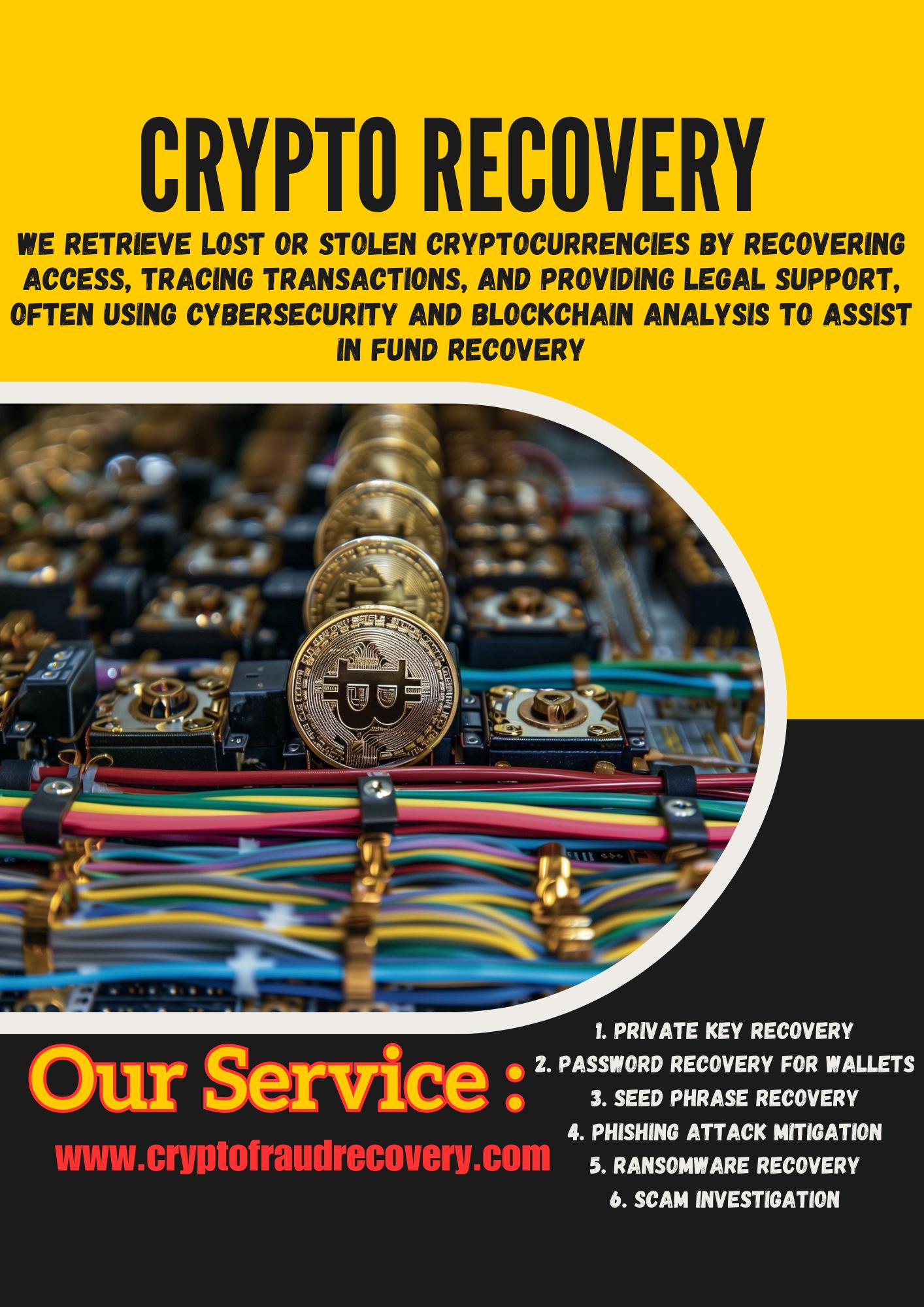How to Recover Lost Crypto Funds: Comprehensive Guide to Bitcoin and Cryptocurrency Wallet Recovery
How to Recover Lost Crypto Funds: Losing access to cryptocurrency funds is a significant concern for crypto investors. Whether due to a forgotten password, lost private keys, or compromised security, lost funds can feel like a devastating blow, especially with the high value of many digital assets. Fortunately, there are solutions! This guide will explore proven methods and tools for crypto recovery, offering insights on how to regain control of your Bitcoin and altcoins while minimizing risks.
Common Causes of Lost Crypto Funds
Understanding why crypto funds go missing is key to planning your recovery. Some typical causes include:
-
Lost Private Keys: Private keys are the only means to access your crypto funds, making them essential for crypto ownership. Unfortunately, losing them is common and one of the main reasons for locked accounts.
-
Forgotten Wallet Passwords: Many wallet systems use passwords or PINs for access, and forgetting these can lead to significant issues.
-
Corrupted Wallet Files: Digital wallets may become corrupted due to device malfunctions, software bugs, or improper handling, making it difficult to access funds.
-
Deleted Wallets or Applications: Accidentally deleting a wallet app or file without backup can also result in loss.
-
Hacks and Phishing Scams: Cybercriminals target crypto wallets, using scams to steal keys or passwords and sometimes draining entire accounts.

Steps to Recover Lost Crypto Funds
The recovery process can vary depending on how the funds were lost. Here are methods for each scenario:
-
Recovering Lost Private KeysIf you’ve lost your private keys, it may be challenging to retrieve them, but these options can help:Mnemonic Phrase (Seed Phrase) Recovery: Most crypto wallets offer a recovery or seed phrase upon wallet creation. If you have this phrase, you can recover your private key.Software and Key Finder Tools: There are specialized tools like btcrecover that help recover lost keys through methods like brute-force password guessing or testing various phrases.Cryptography Experts: Consider hiring a crypto recovery service that specializes in forensic key recovery, especially if you have no clue what your key might have been.Internal Link Tip: Link to a guide on using recovery phrases for major crypto wallets.
-
Recovering Forgotten Wallet PasswordsForgetting your wallet password can be resolved with a few methods:Password Recovery Tools: Some wallet recovery tools use brute-force algorithms to retrieve forgotten passwords. Ensure that these tools are from reputable sources to avoid scams.Password Guessing with btcrecover: This open-source tool allows users to run password-recovery attempts with customizable rules and dictionaries, helping you try out common passwords or variations.
-
Handling Corrupted Wallet FilesCorrupted wallet files can lead to inaccessible funds. If this happens, you can try:Wallet Data Recovery Software: Tools like Data Recovery Wizard or Recuva can sometimes restore wallet files if they’ve been damaged or partially deleted.Backup Restoration: If you’ve kept backups, restore them on a new wallet installation to recover access.
Recovering from Hacks and Phishing Attacks
If your wallet has been compromised by a phishing scam or hack, follow these steps:
- Contact Wallet Support: While not all wallet providers offer support for funds recovery, reputable ones can guide you on immediate security steps to prevent further loss.
- Report to Authorities: In some cases, reporting your loss to cybercrime authorities can help, especially if there are large sums involved.
- External Link Tip: Link to a reputable source like Blockchain.com or CoinDesk for advice on securing crypto wallets.

How to Protect Your Crypto Assets in the Future
Once you’ve recovered your funds, take these preventative steps to safeguard your assets going forward:
-
Keep a Secure Backup of Your Seed PhraseWrite down your seed phrase and keep it in a secure, offline location like a safe. Avoid storing it digitally to minimize hacking risks.
-
Use Multi-Factor Authentication (MFA)Multi-factor authentication adds an extra layer of security, requiring you to verify your identity with both your password and an additional factor, like a text code or app prompt.
-
Use Hardware Wallets for Large HoldingsFor significant crypto investments, consider a hardware wallet. These physical devices store your keys offline, making them immune to online hacks.
-
Regularly Update Security PracticesCrypto security is continually evolving. Stay informed on the latest security recommendations, and apply them to your wallet and online accounts.
Key Tools and Resources for Crypto Recovery
Here are some recommended tools and resources for crypto recovery:
- btcrecover: An open-source password recovery tool for Bitcoin and altcoins.
- Exodus and Trust Wallet Support: Popular wallets with strong customer support and guides for recovery.
- Data Recovery Software: Tools like EaseUS Data Recovery can assist with corrupted wallet files.
- External Link Tip: Link to trusted recovery tool sources or articles on best practices in crypto security.
Frequently Asked Questions (FAQs)
-
Q: Can I recover crypto if I lose my private key?Yes, but it depends on whether you have your seed phrase or access to a backup. Without either, recovery is often impossible unless cryptographic services are employed, though they are not always successful.
-
Q: Are crypto recovery services safe to use?Many reputable services can help, but beware of scams. Research any service thoroughly and read user reviews. Avoid sharing sensitive information unless the service is legitimate.



